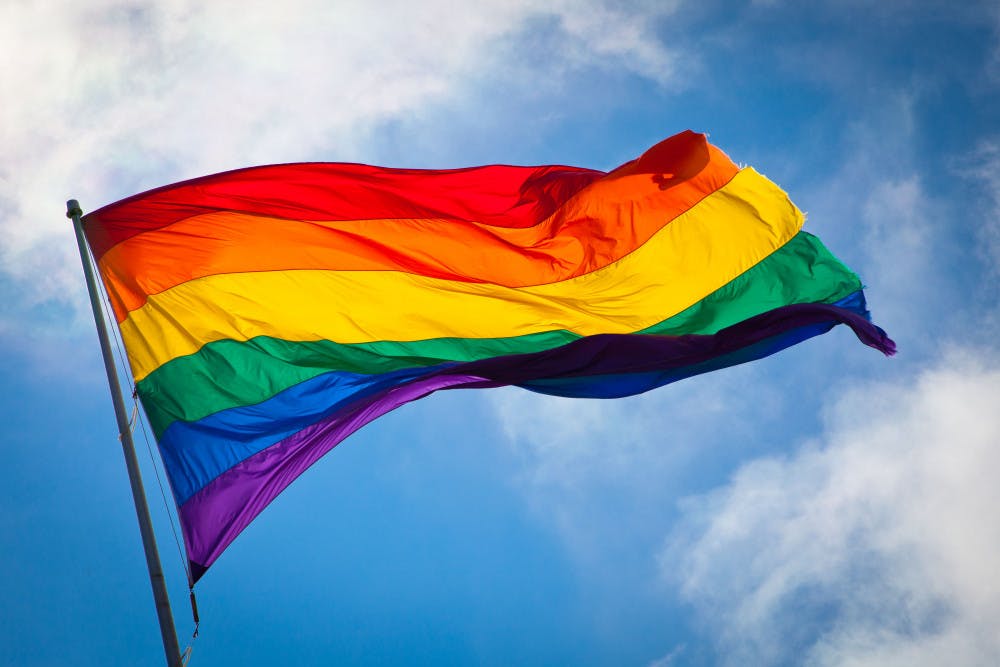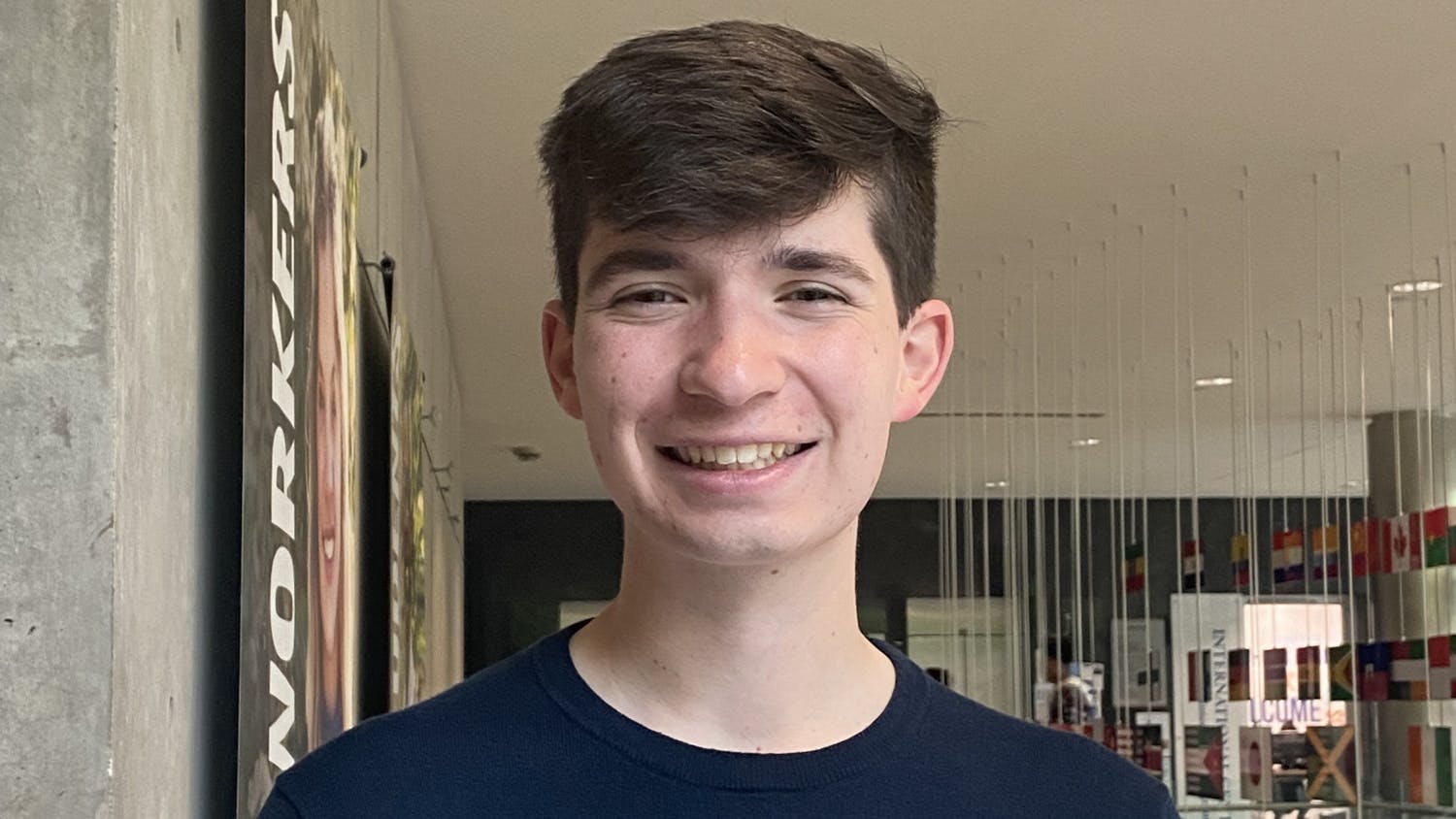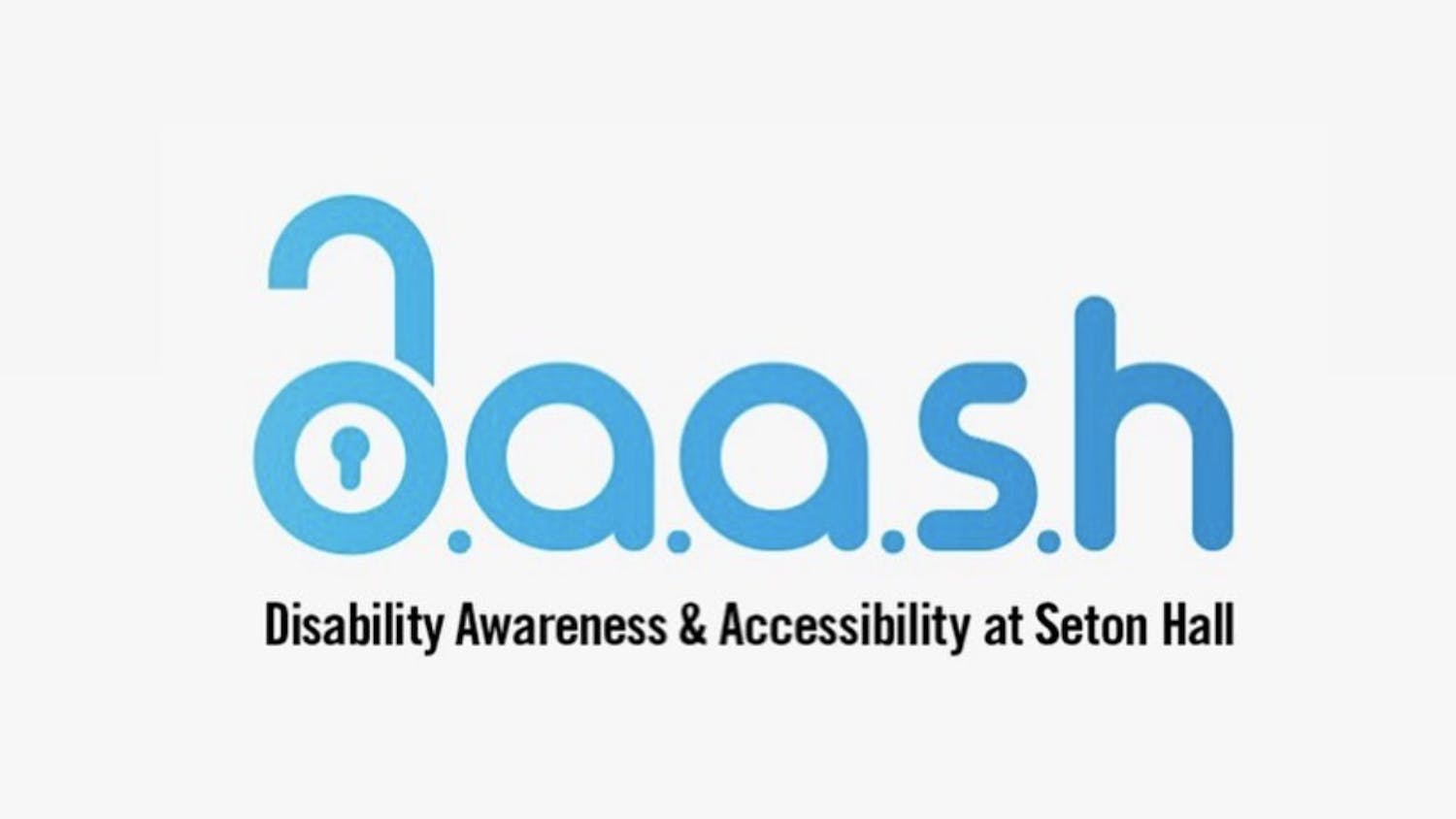[caption id="attachment_14870" align="aligncenter" width="5254"] via Via Flickr/Benson Kua[/caption]
At Seton Hall University’s 159th baccalaureate commencement ceremony on May 16, members of the Class of 2016 prepared for their journey beyond undergraduate school.
Speeches were made. Tears were shed. It was the perfect send off into the real world for many, but not for Corina Hendren.
Hendren, who graduated from the School of Diplomacy and International Relations, wrote in a Facebook post after the ceremony that the speech made by Archbishop John Myers of the Archdiocese of Newark made her “angry and uncomfortable” on “what was supposed to be the happiest day” of her life.
Myers, who submitted his retirement notice to Pope Francis after turning 75 years old in July, stated in his commencement speech that “mistaken ideas of what love and marriage mean, many of which are supported by the state and society” were attacking family values.
“The family is the center of all human life, even though it seems very much under attack these days,” Myers said in his speech.
Hendren said that she believed Myers’ statements were about the LGBTQ (lesbian, gay, bisexual, transgender and queer) community.
“I felt attacked, undervalued, and as though I did not fit with what Seton Hall stood for,” Hendren wrote in an email. “I was astounded that he would take this time, in a room that I can assure you was filled with members of the LGBTQ community, to single us out and attack our livelihoods.”
Myers’ commencement speech was just the latest in a series of incidents that has concerned members of Seton Hall’s LGBTQ community and raised questions about inclusivity on campus.
Myers recently suspended former Seton Hall Director of the Office of Campus Ministry, Rev. Warren Hall, from his priestly duties due to Hall’s continued support for LGBTQ organizations. After being fired from SHU in 2015, Hall came out as a member of the LGBTQ community.
Although the portion of Myers’ speech that stirred controversy only lasted a few seconds, Hendren said that she felt anti-gay sentiments on campus during her time as an undergraduate student.
Hendren said that being a member of the LGBTQ community at SHU was a “very lonely experience” and that after Google searching LGBTQ support groups on campus, she instead found blog posts that discussed a lack of a positive environment for LGBTQ students on campus.
Hendren shared that she did have positive experiences as an LGBTQ student as well. She said that she once had a professor support her after she was interviewed for a past article in The Setonian regarding Hall’s firing.
Zachariah Boyer, a senior political science major, said the LGBTQ climate on campus can be confusing.
“Since we (the LGBTQ community) have chosen to go to Seton Hall, we’re trying not to ruffle feathers,” Boyer said. “But at the same time if we have concern, it would be nice to talk about the needs of the LGBT community on campus in a way that is both respectful of the institution and respectful of the individuals who need to discuss these issues.”
Jim Goodness, a spokesperson for the Archdiocese of Newark, declined to comment on Myers’ speech.
“I would prefer not to comment on issues at the campus,” Goodness wrote in an email.
Dr. Tracy Gottlieb, vice president of Student Services, said that although she couldn’t speak for Myers, she said that the person who she believes to have set the tone on campus is Pope Francis, “who has made it clear that he is not judging anyone and that he welcomes everyone.”
Pope Francis is known as a more progressive pope, one who advocates for the church to be more accepting to divorced Catholics and the LGBTQ community.
“That’s how we approach all students at Seton Hall,” Gottlieb said. “I don’t want to single out LGBTQ students at all. Everybody is welcome here.”
Last semester, Boyer surveyed students at SHU about the LGBTQ climate on campus. The survey received 169 responses from current students and recent graduates who all anonymously submitted their answers.
The study conducted by Boyer was not a scientific survey; due to all of the results being anonymous, there is a possibility some of the students could have responded to the poll more than once using different accounts.
When asked if Seton Hall’s administration makes LGBTQ individuals feel supported, welcomed and safe on campus, four students strongly agreed, 12 students agreed, 60 students remained neutral, 56 students disagreed and 34 students strongly disagreed.
When asked if Seton Hall’s student body makes LGBTQ individuals feel supported, welcomed and safe on campus, 22 students strongly agreed, 47 students agreed, 71 students remained neutral, 21 students disagreed and 7 students strongly disagreed.
Of the students who participated in the survey, about 80 percent identified as female and about 18 percent identified as male. The remaining percentage defined themselves as gender-neutral, non-binary or other.
About 80 percent of the participating students identified as heterosexual while the remaining 20 percent identified as members of the LGBTQ community.
Dr. King Mott, associate professor of political science, said that queer students will face the same difficulties in all societies where being straight or “hetero-normativity is the default narrative.”
“One’s interior life and voice is the guide to happiness in this world,” Mott wrote in an email.
“Conscience is the singular most important aspect that all humans seek to develop. When people choose to ridicule someone for any reason, they dehumanize her and seek to manipulate and control her. All of us, regardless of sexual orientation, will confront that reality.”
As previously reported in the Setonian, Mott was fired from his position as associate dean for the College of Arts and Sciences in 2005 after submitting an op-ed to the Star-Ledger of Newark regarding the church’s discrimination against gay men. He was forced to take a two-month leave of absence and was reassigned as an associate professor.
An on-campus source for students is the ALLIES club, which aims to educate SHU students on the LGBTQ lifestyle while offering a safe space to those in the LGBTQ community.
According to Charlotte Slocum, a sophomore broadcasting and creative writing major and Treasurer for ALLIES, the group does not receive funds from the University and is looking for alternate ways to fund meetings and events.
“Not too many people seem to know of our group; I get a lot of surprised (and excited!) students, even upperclassmen, who didn’t know that the campus would even have a group like us,” Slocum wrote in an email.
Boyer said that he would like for the conversation about LGBTQ issues to begin on campus, but he understands that it can be a difficult subject to address.
Gottlieb said that if any students on campus feel unwelcome, she recommends they see her and explain why they feel that way.
“We’ll see if we can work on it,” Gottlieb said.
As for Hendren, she said that even though she has faced some adversity on campus as an LGBTQ student, she is a proud graduate of Seton Hall and will always say great things about the School of Diplomacy and International Relations.
“It gave me a great education and allowed me to pursue things that I had never dreamed of,” Hendren said. “The staff encouraged me and supported my academic aspirations. However, I cannot and will not support an institution that chooses to overlook, cast out, and ignore a significant portion of their students, especially on their graduation day.”
Ashley Turner can be reached at ashley.turner1@student.shu.edu.
via Via Flickr/Benson Kua[/caption]
At Seton Hall University’s 159th baccalaureate commencement ceremony on May 16, members of the Class of 2016 prepared for their journey beyond undergraduate school.
Speeches were made. Tears were shed. It was the perfect send off into the real world for many, but not for Corina Hendren.
Hendren, who graduated from the School of Diplomacy and International Relations, wrote in a Facebook post after the ceremony that the speech made by Archbishop John Myers of the Archdiocese of Newark made her “angry and uncomfortable” on “what was supposed to be the happiest day” of her life.
Myers, who submitted his retirement notice to Pope Francis after turning 75 years old in July, stated in his commencement speech that “mistaken ideas of what love and marriage mean, many of which are supported by the state and society” were attacking family values.
“The family is the center of all human life, even though it seems very much under attack these days,” Myers said in his speech.
Hendren said that she believed Myers’ statements were about the LGBTQ (lesbian, gay, bisexual, transgender and queer) community.
“I felt attacked, undervalued, and as though I did not fit with what Seton Hall stood for,” Hendren wrote in an email. “I was astounded that he would take this time, in a room that I can assure you was filled with members of the LGBTQ community, to single us out and attack our livelihoods.”
Myers’ commencement speech was just the latest in a series of incidents that has concerned members of Seton Hall’s LGBTQ community and raised questions about inclusivity on campus.
Myers recently suspended former Seton Hall Director of the Office of Campus Ministry, Rev. Warren Hall, from his priestly duties due to Hall’s continued support for LGBTQ organizations. After being fired from SHU in 2015, Hall came out as a member of the LGBTQ community.
Although the portion of Myers’ speech that stirred controversy only lasted a few seconds, Hendren said that she felt anti-gay sentiments on campus during her time as an undergraduate student.
Hendren said that being a member of the LGBTQ community at SHU was a “very lonely experience” and that after Google searching LGBTQ support groups on campus, she instead found blog posts that discussed a lack of a positive environment for LGBTQ students on campus.
Hendren shared that she did have positive experiences as an LGBTQ student as well. She said that she once had a professor support her after she was interviewed for a past article in The Setonian regarding Hall’s firing.
Zachariah Boyer, a senior political science major, said the LGBTQ climate on campus can be confusing.
“Since we (the LGBTQ community) have chosen to go to Seton Hall, we’re trying not to ruffle feathers,” Boyer said. “But at the same time if we have concern, it would be nice to talk about the needs of the LGBT community on campus in a way that is both respectful of the institution and respectful of the individuals who need to discuss these issues.”
Jim Goodness, a spokesperson for the Archdiocese of Newark, declined to comment on Myers’ speech.
“I would prefer not to comment on issues at the campus,” Goodness wrote in an email.
Dr. Tracy Gottlieb, vice president of Student Services, said that although she couldn’t speak for Myers, she said that the person who she believes to have set the tone on campus is Pope Francis, “who has made it clear that he is not judging anyone and that he welcomes everyone.”
Pope Francis is known as a more progressive pope, one who advocates for the church to be more accepting to divorced Catholics and the LGBTQ community.
“That’s how we approach all students at Seton Hall,” Gottlieb said. “I don’t want to single out LGBTQ students at all. Everybody is welcome here.”
Last semester, Boyer surveyed students at SHU about the LGBTQ climate on campus. The survey received 169 responses from current students and recent graduates who all anonymously submitted their answers.
The study conducted by Boyer was not a scientific survey; due to all of the results being anonymous, there is a possibility some of the students could have responded to the poll more than once using different accounts.
When asked if Seton Hall’s administration makes LGBTQ individuals feel supported, welcomed and safe on campus, four students strongly agreed, 12 students agreed, 60 students remained neutral, 56 students disagreed and 34 students strongly disagreed.
When asked if Seton Hall’s student body makes LGBTQ individuals feel supported, welcomed and safe on campus, 22 students strongly agreed, 47 students agreed, 71 students remained neutral, 21 students disagreed and 7 students strongly disagreed.
Of the students who participated in the survey, about 80 percent identified as female and about 18 percent identified as male. The remaining percentage defined themselves as gender-neutral, non-binary or other.
About 80 percent of the participating students identified as heterosexual while the remaining 20 percent identified as members of the LGBTQ community.
Dr. King Mott, associate professor of political science, said that queer students will face the same difficulties in all societies where being straight or “hetero-normativity is the default narrative.”
“One’s interior life and voice is the guide to happiness in this world,” Mott wrote in an email.
“Conscience is the singular most important aspect that all humans seek to develop. When people choose to ridicule someone for any reason, they dehumanize her and seek to manipulate and control her. All of us, regardless of sexual orientation, will confront that reality.”
As previously reported in the Setonian, Mott was fired from his position as associate dean for the College of Arts and Sciences in 2005 after submitting an op-ed to the Star-Ledger of Newark regarding the church’s discrimination against gay men. He was forced to take a two-month leave of absence and was reassigned as an associate professor.
An on-campus source for students is the ALLIES club, which aims to educate SHU students on the LGBTQ lifestyle while offering a safe space to those in the LGBTQ community.
According to Charlotte Slocum, a sophomore broadcasting and creative writing major and Treasurer for ALLIES, the group does not receive funds from the University and is looking for alternate ways to fund meetings and events.
“Not too many people seem to know of our group; I get a lot of surprised (and excited!) students, even upperclassmen, who didn’t know that the campus would even have a group like us,” Slocum wrote in an email.
Boyer said that he would like for the conversation about LGBTQ issues to begin on campus, but he understands that it can be a difficult subject to address.
Gottlieb said that if any students on campus feel unwelcome, she recommends they see her and explain why they feel that way.
“We’ll see if we can work on it,” Gottlieb said.
As for Hendren, she said that even though she has faced some adversity on campus as an LGBTQ student, she is a proud graduate of Seton Hall and will always say great things about the School of Diplomacy and International Relations.
“It gave me a great education and allowed me to pursue things that I had never dreamed of,” Hendren said. “The staff encouraged me and supported my academic aspirations. However, I cannot and will not support an institution that chooses to overlook, cast out, and ignore a significant portion of their students, especially on their graduation day.”
Ashley Turner can be reached at ashley.turner1@student.shu.edu.





